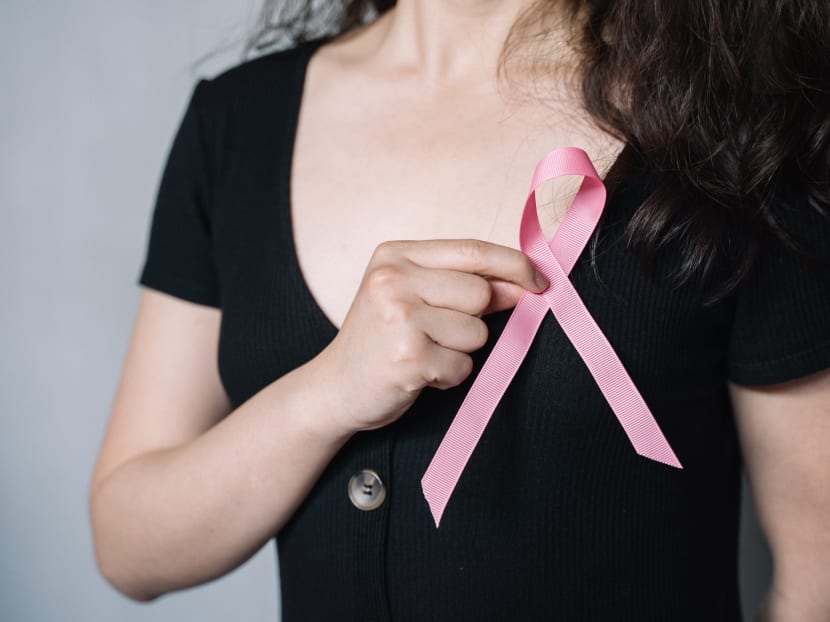Why breast cancer is a public health issue in Singapore
October has been abuzz with Breast Cancer Awareness Month Pink Ribbon activities in the breast cancer community, Covid-19 notwithstanding. Amidst pink planking and other efforts promoting being in the pink of health whilst living with breast cancer, the publication of the Singapore Cancer Registry’s 50th Anniversary Monograph late last year gives pause for thought.

The enormity and urgency of the breast cancer problem in Singapore warrants commensurate research funding of a very large scale, says the author.
October has been abuzz with Breast Cancer Awareness Month Pink Ribbon activities in the breast cancer community, Covid-19 notwithstanding.
Amidst pink planking and other efforts promoting being in the pink of health whilst living with breast cancer, the publication of the Singapore Cancer Registry’s 50th Anniversary Monograph late last year gives pause for thought.
The monograph reports on five decades of cancer incidence, mortality and survival in Singapore from 1968 to 2017. It follows on the back of regular five-year reporting from the Singapore Cancer Registry.
Breast cancer is the commonest and deadliest female cancer in Singapore. The number of new cases (incidence) has been increasing relentlessly — the age-standardised incidence rate has more than tripled in the past five decades.
In contemporary times (2013-2017), if men were to be included in the incidence rankings, breast cancer is ranked higher than colorectal cancer, which is the cancer of highest incidence in men — and the trend of colorectal cancer incidence has started to plateau.
Breast cancer remains the most frequent cause of female cancer death. This is in spite of the stabilisation of the age-standardised mortality rate since the early 1990s, largely attributable to effective treatment, and a reflection of the sheer numbers of breast cancer patients in Singapore.
Breast cancer’s socioeconomic impact is huge. Approximately half of breast cancer cases are diagnosed in pre-menopausal and peri-menopausal women, that is during their economically productive years.
Asian women are the lynchpin of the family unit — guard her health, and she guards the family unit and the integrity of the social fabric.
Breast cancer is a public health issue that needs to be tackled on a few fronts. From the clinical management standpoint, access to cancer care is important.
Singapore’s national health insurance scheme, MediShield Life, has provided broader access to cancer treatment since its introduction in 2015.
The monthly reimbursement of S$3,000 has gone a long way in ensuring standard of care for breast cancer patients.
As we look to the future, with the continual incorporation of new and effective but expensive drugs into clinical practice, the recent announcement of the MediShield premium increase came as no surprise.
Diagnostics is an area that needs discussion. As the field of oncology advances, the role of molecular profiling, which includes next generation sequencing, becomes more apparent.
This diagnostic platform guides treatment selection and planning, so the time to grapple with the issue of whether it should be MediShield-claimable is now.
From the medical and scientific standpoint, support for breast cancer research is crucial.
It is through research that we gain a deeper understanding of the beast in the breast, and develop innovative and improved ways to prevent and to treat it.
It is through research that there may be an opposing force to the rising incidence of and death from breast cancer in Singapore.
Support comes in several forms, such as, i) more funding for laboratory-based research and clinical studies, ii) increased participation in clinical trials, iii) improved operational systems and infrastructure that support research.
A lot of attention has been focussed on metastatic disease, that is cancer that has spread beyond the breast region. Similar attention should be given to cancer prevention and monitoring.
Questions as basic as “How do cells change from normal to abnormal?”, “What are the molecular or cellular signals that switch cells from being non-invasive to invasive?” can only be answered in the laboratory.
These questions are important to explore, as they underlie the entire cancer process.
They also form the basis upon which new and possibly better interventions/treatment are devised and developed, benefiting many cancer patients.
It is an uphill task attracting research funding, as it is usually seen as an academic pursuit without certain/any return on dollar investment.
Suffice it to say, the enormity and urgency of the breast cancer problem in Singapore warrants commensurate research funding of a very large scale.
There is movement on the ground; momentum has formed.
Breast Cancer Research Singapore is a nationwide consortium of clinicians and scientists dedicated to breast cancer research in Singapore, whose patron is President Halimah Yacob.
Our hospitals run clinical trials and studies, with study coordinators on the constant lookout for potential participants.
Participation in clinical trials and studies is essential in pushing the advancement of cancer care beyond current limits.
Singapore is well-poised to be at the leading edge of breast cancer research, as the facilities in our research institutions and universities are top-notch and continually being upgraded.
While there are existing research support systems and infrastructure in place, we seek and strive for constant improvement.
This includes better coordination amongst breast cancer stakeholders and interest groups, a subject that the immediate past president of Breast Cancer Foundation in Singapore, Madam Noor Quek, has spoken strongly about.
To go fast, go alone; to go far, go together. Ideally, it would be to go far fast.
Realistically, the field of breast cancer research is a collective effort that will go far, if there is continued support.
Beyond Breast Cancer Awareness Month, do spare a thought for our fellow Singaporeans with breast cancer — think pink.
ABOUT THE AUTHOR:
Dr Elaine Lim is president of the Singapore Society of Oncology.






